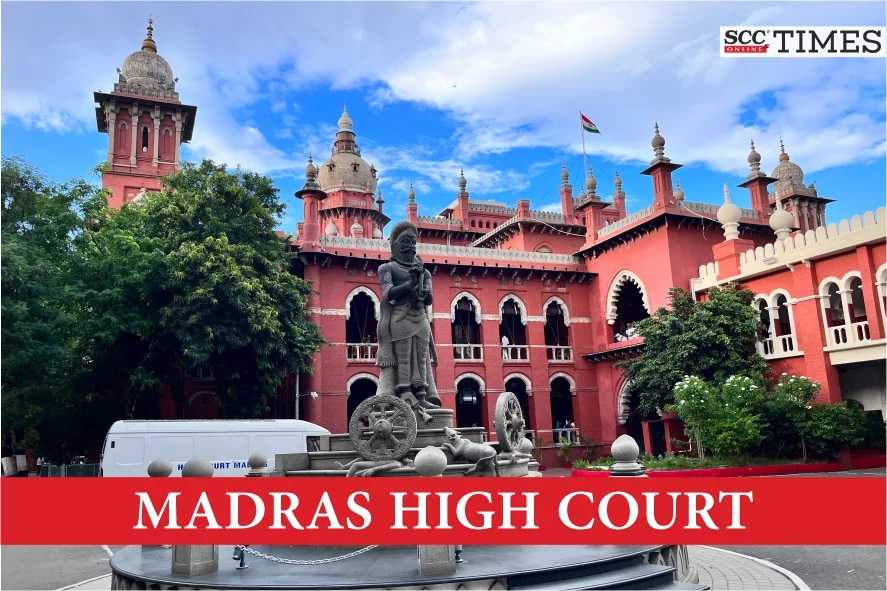Madras High Court: In a writ petition filed to declare that Regulation 3.1 of the Tamil Nadu Dr. Ambedkar Law University Ph.D Regulations, 2020 (‘Regulations , 2020’) ultra vires the Constitution and hence null and void to the extent that they prescribe possession of two years Master’s Degree in law as eligibility criteria for admission to Ph.D., Degree in Law and consequently directing the University to permit the petitioner to apply for Ph.D admission , the division bench of Sanjay V.Gangapurwala and D.Bharatha Chakravarthy*, JJ. while reading down the Clause 3.1 of the Regulations, 2020 without the words ‘Two Years’, has directed the University to admit the petitioner in Ph.D. programme pursuant to her application and allow her to pursue the research in accordance with their rules and procedure.
The petitioner has been working in the University on contract from 01-07-2019. In the year 2020, the University framed Regulations, 2020. Clause 3.1 of the Regulations makes only those who possess a ‘two-year LLM’ alone eligible for admission to PhD in the University. The University also issued Notification 2021-2022 dated 10-05-2021, inviting applications from eligible candidates for Ph.D Research Programme against 110 vacancies. However, in view of the impugned regulations, the petitioner could not apply. Hence the present writ petition was filed.
The Court said that prescribing minimum standards for higher education is in the realm of the Central Government and for this purpose has enacted the University Grants Commission Act, 1956 and the qualifications have to be approved by the UGC as per Section 22. The UGC can frame regulations defining the minimum standards of instruction for the grant of any degree by any University as per Section 26(f). In the exercise of the said powers, UGC issued the Guidelines for introduction of one-year LLM Degree Programme, 2012, to make the curriculum in tune with other jurisdictions across the globe.
The Court noted that one has to undergo a minimum of 5 years of college study or 6 years of college study to enter LL.M. Therefore, when the duration has been fixed by the UGC and the one-year LLM is recognised by the UGC, the net effect for admission to full-time Ph.D, would be eligible. The University is bound by the same and cannot prescribe a different set of eligibility. If it wants to prescribe higher standards that would mean greater standards in the qualifications, such as having 60% etc., and would not mean knocking off any or all the qualifications from eligibility. Thus, the rule does not prescribe greater qualification, as the two-year LLM is not a higher qualification than the one-year LLM as both get the same degrees. Prescribing higher standards would be in ‘addition to’ and not in ‘derogation to’. It can be supplementing and not supplanting.
The Court said that when UGC standards approve two sets of UG and PG qualifications, that is 5-year law course and a 3-year law course and 1 Year LLM and 2 Year LLM, if by an admission regulation, the Universities mandate that they will admit candidates with only 3-year law or 5-year law alone or 1 year LLM or 2 Year LLM alone, then that does not mean ‘Higher Standards’ but would be impinging upon the jurisdiction of the UGC and would accordingly be ultra vires.
[Suganya Jeba Sarojini v. Tamil Nadu Dr. Ambedkar Law University, 2024 SCC OnLine Mad 367, Order dated 12-03-2024]
*Order by: Justice D.Bharatha Chakravarthy
Advocates who appeared in this case :
For the Petitioner: Advocate M. Nirmal Kumar
For the Respondents: Senior Counsel Dr. Thiyagarajan, Advocate P.R. Gopinathan







